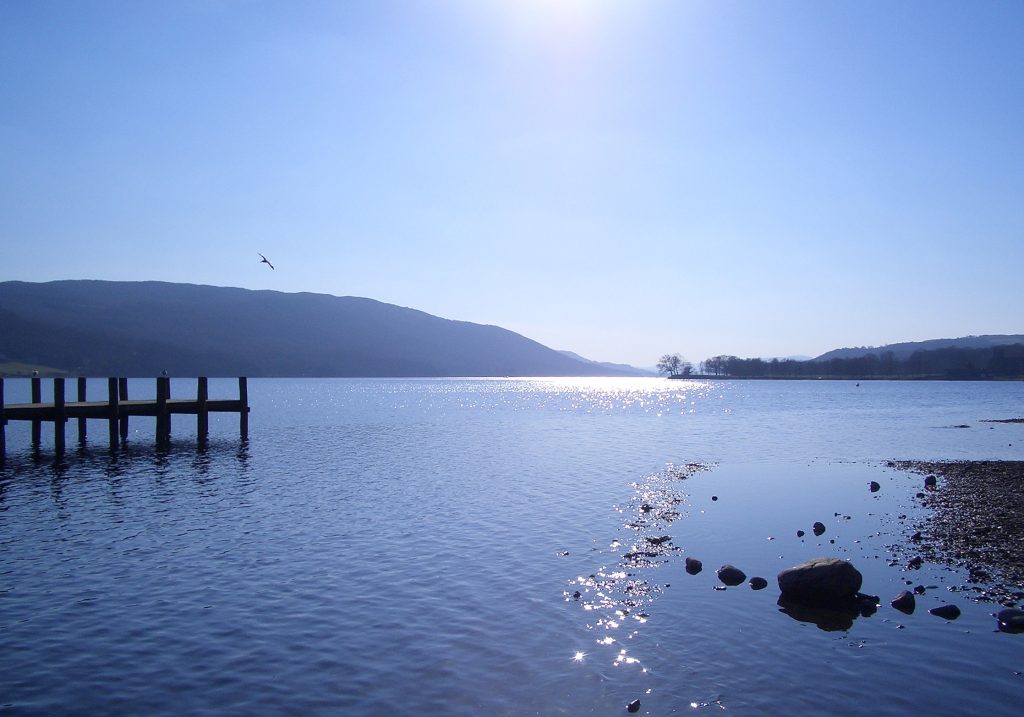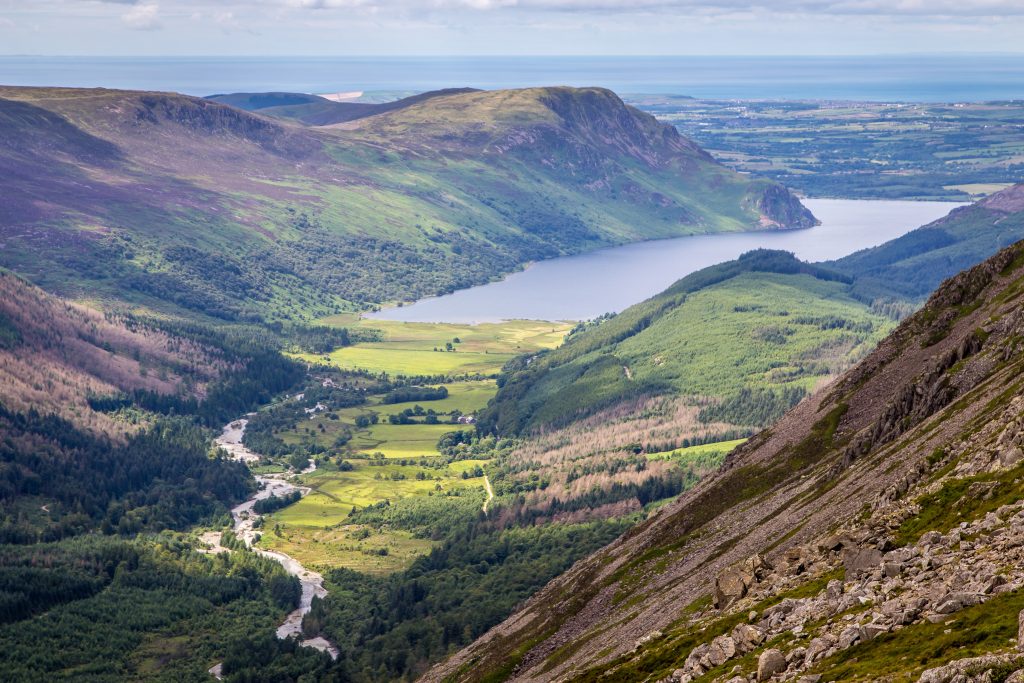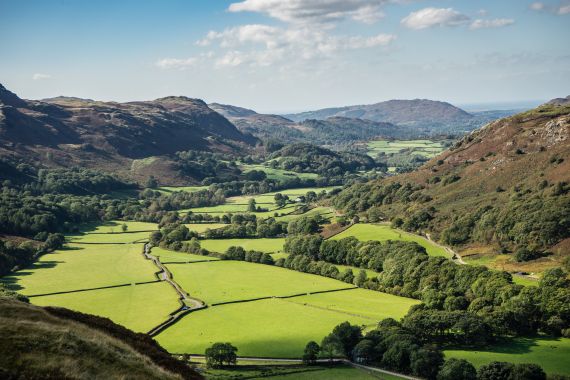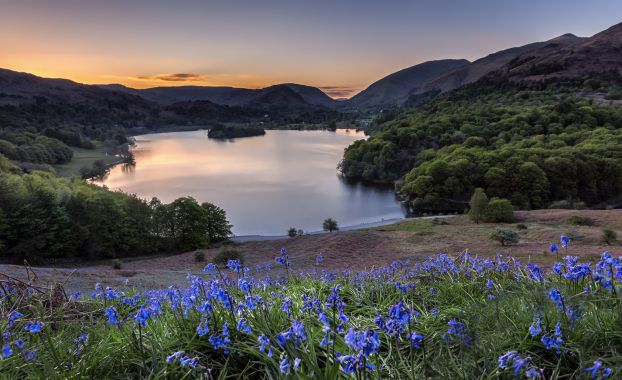
The Lake District National Park, located in northwest England, is one of the most beloved destinations in the UK, known for its stunning landscapes, crystal-clear lakes, and rugged mountains. However, the Lake District is not only famous for its breathtaking natural beauty but also for its strong commitment to sustainability. As one of the UK’s leading examples of responsible tourism and environmental conservation, this region offers visitors a chance to experience the outdoors while supporting efforts to preserve and protect the landscape for future generations.
In this blog, we will explore the Lake District’s dedication to sustainability, from its conservation programs to its focus on renewable energy and eco-friendly tourism. We’ll also highlight the role of the local community, family-run farms, and tourism businesses in creating a more sustainable future. Whether you’re planning a hike in the mountains, a boat trip on one of the lakes, or a stay in one of the region’s eco-friendly accommodations, the Lake District offers an ideal escape for those seeking both adventure and environmental responsibility.

A Commitment to Sustainability in the Lake District
The Lake District National Park spans over 2,362 square kilometers and is home to England’s highest mountain, Scafell Pike, and its deepest lake, Wastwater. The landscape, formed by glaciers during the last Ice Age, offers a rich diversity of habitats, from ancient woodlands to rolling fells and pristine lakes. Recognizing the importance of protecting these natural resources, the Lake District has made significant strides in promoting sustainability and environmental conservation.
Conservation Efforts: Protecting Nature for Future Generations
One of the primary reasons the Lake District has become a beacon of sustainability is due to the concerted efforts of organizations such as the National Park Authority, the Forestry Commission, and the Royal Society for the Protection of Birds (RSPB). These groups work tirelessly to ensure the conservation and protection of the park’s natural resources, wildlife, and habitats.
The Lake District is home to several rare and endangered species, including the red squirrel, osprey, and peregrine falcon. Conservation programs focus on protecting these species and their habitats through reforestation, habitat restoration, and wildlife monitoring. Additionally, the RSPB runs several nature reserves within the park, where visitors can learn about local wildlife and participate in conservation projects.
The National Park Authority plays a key role in maintaining the park’s delicate balance between human activity and environmental preservation. By enforcing strict planning regulations, promoting eco-friendly farming practices, and encouraging sustainable tourism, the authority helps ensure that the Lake District remains an unspoiled natural treasure for future generations.
Renewable Energy Initiatives
The Lake District is also a leader in the transition to renewable energy, utilizing its natural resources to generate clean power. Hydroelectric power, harnessed from the many rivers and lakes in the region, plays a significant role in reducing the park’s reliance on fossil fuels. There are several small-scale hydroelectric schemes throughout the Lake District, which generate electricity for local communities and reduce the region’s carbon footprint.
In addition to hydroelectric power, the Lake District has invested in solar and wind energy. Many buildings, including farms, hotels, and homes, have installed solar panels to take advantage of the area’s sunny days, while wind turbines capture the strong winds that sweep across the open fells. These renewable energy initiatives are part of the park’s broader strategy to achieve energy self-sufficiency and reduce greenhouse gas emissions.
By focusing on renewable energy, the Lake District is helping to mitigate the effects of climate change while preserving its natural beauty for future visitors.

Sustainable Agriculture in the Lake District: Protecting Tradition and the Environment
Farming has long been a central part of life in the Lake District, with traditional farming methods shaping the landscape and supporting local communities. In recent years, many family-run farms in the region have embraced sustainable farming practices, recognizing the importance of protecting the environment while maintaining their agricultural heritage.
Traditional Farming Practices and Biodiversity
One of the key elements of sustainable farming in the Lake District is the use of traditional farming methods, such as rotational grazing, hedgerow management, and low-impact livestock rearing. These methods not only protect the soil and reduce the need for chemical fertilizers but also help maintain the biodiversity of the area. By managing the land in a way that encourages natural processes, farmers are able to preserve the habitats of a wide range of plant and animal species.
Many farms in the Lake District also focus on the preservation of rare breeds of livestock, such as the Herdwick sheep, which have been grazing the fells for centuries. These hardy sheep are well adapted to the harsh conditions of the Lake District’s uplands and play a vital role in maintaining the health of the ecosystem. By supporting rare breeds and traditional practices, farmers contribute to the conservation of the Lake District’s unique agricultural landscape.

Organic and Biodynamic Farming
In addition to traditional farming methods, an increasing number of farms in the Lake District have adopted organic and biodynamic farming practices. These methods emphasize the use of natural inputs, such as compost and manure, and avoid the use of synthetic pesticides and fertilizers. By promoting soil health and reducing pollution, organic and biodynamic farming helps protect the environment while producing high-quality food for local markets.
Many of these farms sell their products directly to consumers through farmers’ markets, farm shops, and restaurants in the region, providing visitors with the opportunity to enjoy fresh, locally sourced food. From organic vegetables to artisan cheeses and grass-fed meats, the Lake District’s local produce reflects the region’s commitment to sustainability and quality.
Community-Led Conservation: A United Effort for Sustainability
One of the most remarkable aspects of sustainability in the Lake District is the strong sense of community that drives conservation efforts. Residents, business owners, and visitors alike play an active role in protecting and preserving the park’s environment. This collective effort has helped the Lake District become a model for how communities can come together to address environmental challenges.
Litter Picks and Conservation Projects
Local communities organize regular litter picks and conservation projects to keep the park clean and preserve its natural beauty. These events bring together volunteers from across the region who are passionate about maintaining the Lake District’s pristine condition. Whether it’s removing litter from popular hiking trails or planting trees to restore natural habitats, these grassroots efforts make a significant difference in the health of the park.
Many local businesses, including hotels, restaurants, and outdoor activity providers, also contribute to conservation efforts by supporting local environmental charities and running sustainability campaigns. These initiatives help raise awareness about the importance of protecting the environment and encourage visitors to adopt sustainable practices during their stay.
Campaigns for Sustainability Awareness
The Lake District is home to several campaigns aimed at raising awareness about sustainability issues. These campaigns often focus on topics such as reducing plastic waste, conserving water, and promoting eco-friendly transportation. For example, local organizations encourage visitors to use public transportation or participate in bike hire schemes to reduce the carbon footprint of travel within the park.
Campaigns to reduce single-use plastics have also gained momentum in recent years, with many businesses offering alternatives such as reusable cups and eco-friendly packaging. By engaging both locals and tourists in sustainability initiatives, the Lake District is building a culture of environmental stewardship that benefits both people and nature.
Sustainable Tourism in the Lake District: Eco-Friendly Options for Visitors
Tourism is one of the most important industries in the Lake District, attracting millions of visitors each year. However, with this popularity comes the responsibility to ensure that tourism activities do not harm the environment. The Lake District has embraced sustainable tourism, offering a wide range of eco-friendly options that allow visitors to experience the beauty of the park without leaving a negative impact.
Eco-Friendly Accommodations
Many hotels, bed and breakfasts, and self-catering accommodations in the Lake District have adopted eco-friendly practices to minimize their environmental impact. These practices include the use of energy-efficient lighting, recycling facilities, and low-flow water fixtures. Some accommodations have even gone a step further by installing solar panels, using biomass heating systems, and offering electric vehicle charging points.
One of the standout features of eco-friendly accommodations in the Lake District is their commitment to sourcing local products. Many hotels and guesthouses serve locally produced food and support nearby farms, reducing the carbon footprint associated with food transportation. Additionally, some properties have implemented green roofs and wildflower gardens to enhance biodiversity and provide habitats for local wildlife.
By choosing eco-friendly accommodations, visitors can enjoy a comfortable stay while supporting the Lake District’s sustainability goals.
Sustainable Tourism Activities
The Lake District offers a wide range of sustainable tourism activities that allow visitors to explore the region’s natural beauty in an environmentally responsible way. Walking and cycling are two of the most popular options, with hundreds of miles of well-maintained trails that take you through some of the most scenic parts of the park.
For those looking to explore the lakes, boating and canoeing are popular options, and many operators offer electric boats to minimize water pollution and reduce noise. Sailing and paddleboarding are also eco-friendly ways to enjoy the water while leaving a minimal environmental impact.
Wildlife watching is another sustainable activity that attracts nature lovers to the Lake District. Whether you’re spotting red squirrels in the woods or watching ospreys soar over the lakes, the park offers countless opportunities to connect with nature while supporting conservation efforts.
Additionally, the region’s focus on slow tourism—the concept of traveling at a more relaxed pace to fully experience the destination—encourages visitors to immerse themselves in the local culture and environment without rushing. This approach not only enhances the visitor experience but also reduces the pressure on the environment and infrastructure.

The Future of Sustainability in the Lake District
As the Lake District continues to evolve, its commitment to sustainability remains stronger than ever. The park’s long-term vision focuses on promoting environmental education, renewable energy, and sustainable tourism to ensure that future generations can continue to enjoy its natural beauty. With ongoing efforts to restore habitats, protect endangered species, and reduce the region’s carbon footprint, the Lake District is setting a standard for sustainability that other destinations can follow.
For travelers seeking an eco-friendly destination where they can enjoy stunning landscapes, rich cultural heritage, and outdoor adventures, the Lake District is the perfect choice. From the mountains to the lakes, every part of this national park reflects a deep commitment to protecting the environment and promoting sustainability.
In conclusion, the Lake District National Park offers an ideal destination for eco-conscious travelers, combining natural beauty with a strong commitment to sustainability. Whether you’re exploring the region’s conservation efforts, staying in eco-friendly accommodations, or participating in sustainable tourism activities, your visit to the Lake District will not only leave you with unforgettable memories but also contribute to the protection of one of the UK’s most treasured landscapes.
